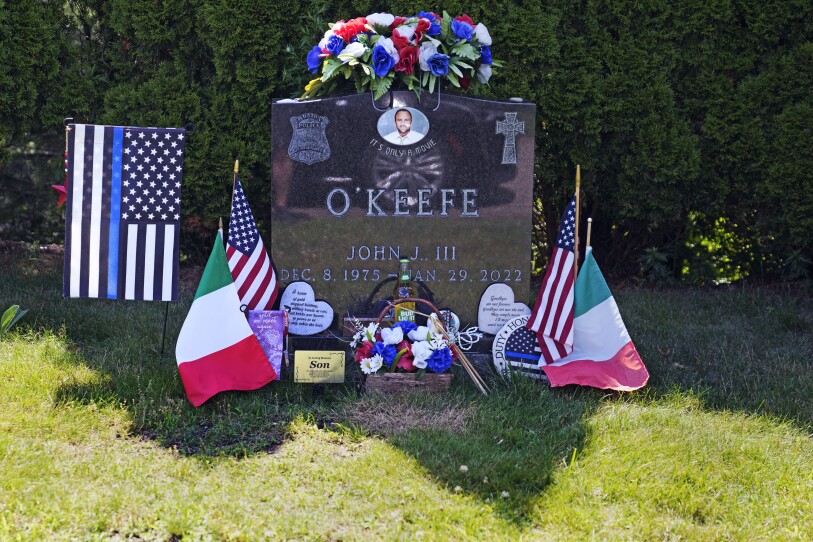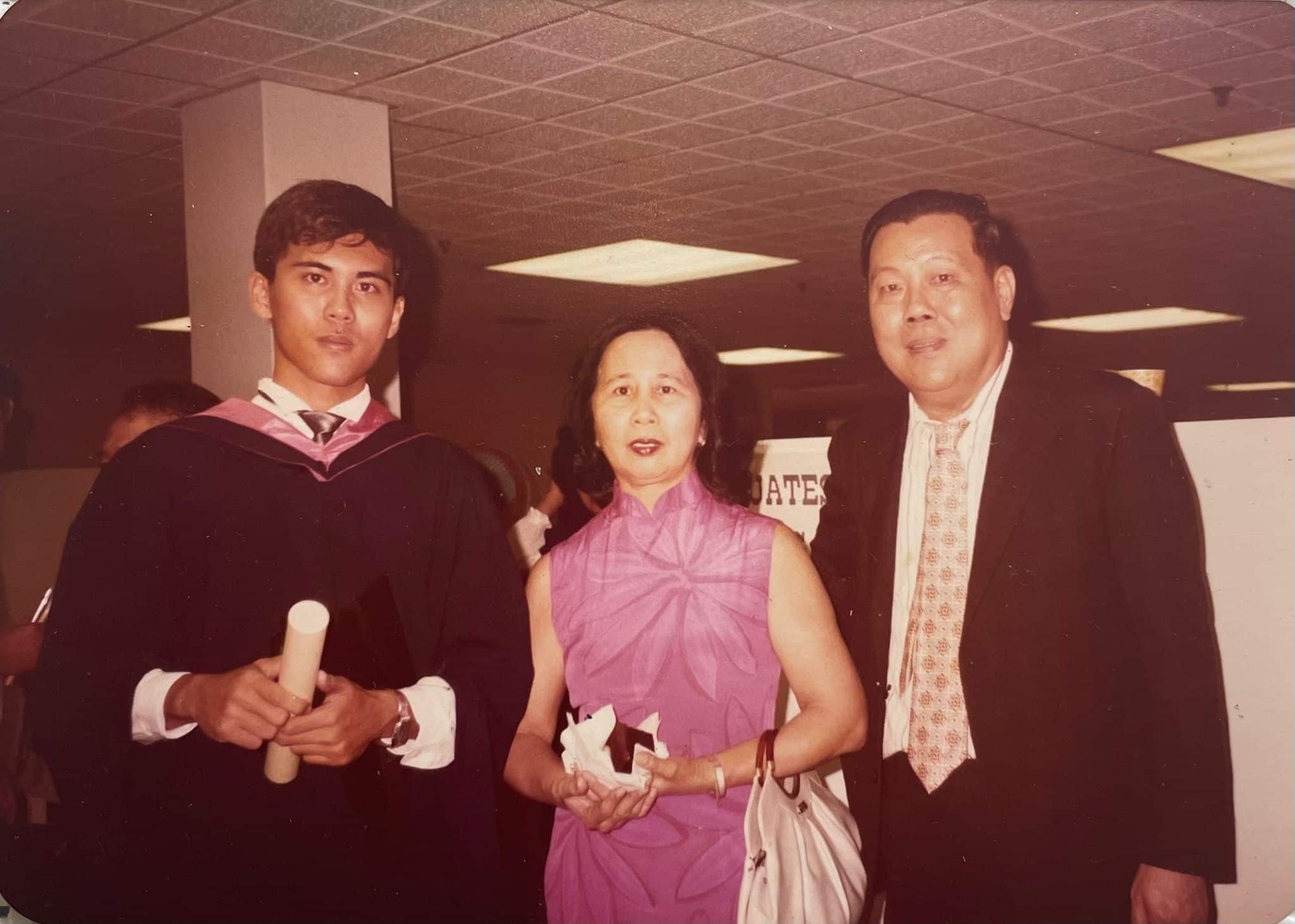Karen Read’s jury deadlock leads to mistrial in death of Boston police officer’s boyfriend

A judge declared the trial void on Monday after jurors could not reach a consensus in the case of Karen Read, a woman accused of killing her boyfriend, a Boston police officer, by hitting him with her SUV and leaving him in a snowstorm. The case has attracted undue attention thanks to crime fanatics, conspiracy theorists and Read’s pink-shirted supporters.
Judge Beverly Cannone has scheduled a hearing for July 22, at which the Commonwealth is expected to make a decision on whether to retry the case. Prosecutors said in a statement that they intend to retry the case.
Attorney Barry Bisson, chairman of the Massachusetts Bar Association’s Criminal Justice Council, said prosecutors would likely “sit down with the family for a while” before moving forward.
“It’s unfortunate for both sides because Ms. Read will have to wait and see if the Commonwealth decides to re-try the case, which could mean another nine-week trial,” Bisson said. “Then there’s the victim’s family who would have to go through all of this again if the Commonwealth decides to go ahead with it.”
The national notoriety of this high-profile case could also hamper the selection of future jurors, Bisson said.
“Nobody can say they haven’t seen or heard about this trial,” he said. “That was the whole thing when they were first selecting the jury, and now that it’s been going on for so long, every day in the news, probably nobody in the Commonwealth can say they haven’t heard about this case. That’s probably going to make it even more difficult to select a jury next time.”
“No one in the Commonwealth can say they haven’t heard about this case. That will likely make it even more difficult to select a jury next time.”
Attorney Barry Bisson
Read, a former adjunct professor at Bentley College, was charged with first-degree murder and other charges in connection with the death of Officer John O’Keefe. O’Keefe had been with the Boston Police Department for 16 years and was found outside the home of another Boston police officer in Canton in January 2022. An autopsy found that O’Keefe died of hypothermia and blunt force trauma.
Prosecutors said Read and O’Keefe had been drinking heavily before she dropped him off at a party at her co-worker Brian Albert’s house. They said she hit him with her SUV before driving away.
The defense attempted to portray Read as the victim, saying O’Keefe was actually killed in Albert’s house and then dragged outside and left to die. They argued that investigators focused on Read because she was a “convenient outsider” who saved them from having to consider other suspects, including Albert and other police officers at the party.
On Friday, a jury foreman told the judge that despite a “comprehensive review of the evidence,” they had not reached a unanimous verdict. The judge told the jury to keep trying. On Monday morning, the jury said they were at an impasse, but the judge told them to keep deliberating. In the afternoon, they said there was no point in continuing to deliberate.
“The deep divide is not due to a lack of effort or care, but rather to a sincere adherence to our individual principles or moral convictions,” said a jury note read by the judge in court.
O’Keefe’s mother cried after the trial was declared invalid, while Read hugged her father and other relatives.
The Norfolk County District Attorney’s Office said in a statement: “First, we thank the O’Keefe family for their dedication and commitment throughout this lengthy process. They have not lost sight of the true essence of this case – finding justice for John O’Keefe. The Commonwealth intends to retry the case.”
Defense attorney Alan Jackson said he and other representatives of Read would continue to fight.
“They have failed. They have failed miserably and they will continue to fail. No matter how long it takes, no matter how long they keep trying, we will not stop fighting,” he told reporters outside the court.

Karl Krupa
AP
Testimony during the two-month trial focused on sloppy police work and relationships between the parties. Police admitted to using red plastic cups to collect blood evidence and using a leaf blower to clear away snow and expose evidence. The lead investigator admitted to making crude statements about Read in text messages from his personal cellphone.
Experts disagreed on whether O’Keefe’s injuries were consistent with the crash caused by Read’s luxury SUV, which had a broken taillight. The defense claimed the injuries were caused by an altercation and the family’s aggressive dog, Albert.
Prosecutors relied on testimony from several first responders that Read admitted to hitting O’Keefe – saying “I hit him” – as well as evidence that Read was intoxicated or nearly intoxicated eight hours later when she returned to the house with friends and they found the body.
Several witnesses testified the couple had a stormy relationship that began to deteriorate. Prosecutors presented angry text messages between the two written hours before O’Keefe’s death. They also played voice messages from Read to O’Keefe left after she allegedly hit him, including one left minutes later that said, “John, I (expletive) hate you.”
Defense attorneys attempted to refute the police investigation, pointing out that Albert’s home was never searched for evidence of a fight with O’Keefe and that the crime scene was not secured. They suggested that some evidence — such as pieces of her SUV’s broken taillight, a broken drinking glass and even a lock of hair — was planted by police.
A turning point in the proceedings came when the lead investigator, State Trooper Michael Proctor, took the stand. He admitted to sending offensive text messages about Read to friends, family and colleagues during the investigation. He apologized for the language he used but insisted it had no impact on the investigation.
In his text messages, he insulted Read in various ways, including calling him a “nutcase.” He once texted his sister that he wanted Read to “kill himself,” which he told the jury was a figure of speech. And despite having relationships with several witnesses, he stuck with the case.
Two expert witnesses called by the U.S. Department of Justice as part of an investigation into the police handling of the case testified for the defense, providing a scientific analysis of their conclusion that O’Keefe’s injuries and the physical evidence were inconsistent with the prosecution’s theory that he was struck and injured by Read’s 7,000-pound vehicle.
O’Keefe suffered a significant head injury and other injuries, but no significant bruising or broken bones typically associated with a collision with a vehicle at the speed indicated by the SUV’s GPS and onboard computer.

Steven Senne
AP
While the drama unfolded in the courtroom, dozens of Read’s supporters in pink gathered outside each day, carrying signs reading “Free Karen Read” and mobbed her as she arrived each day. Drivers honked their horns in support. A smaller group of people calling for Read’s conviction also showed up.
Mary McManus, a longtime Canton resident and retired teacher, once considered Canton a “sleepy little town.” But the case has galvanized residents to speak out, and once-quiet town meetings have turned into contentious affairs, she says.
“It’s disheartening to know that we have to start this process all over again, but in some ways it’s good because it’s an eye-opener,” she said. “People in the city are seeing what’s going on and taking a more active role in the process.”
Heather Fairfield, a property manager who has lived in Canton for 50 years, says the community of about 24,000 has been divided by the “polarizing” case, with many residents afraid to speak out for fear of being ostracized or alienating their neighbors.
She said she was alarmed when she heard about the Canton police’s actions at the scene, which included using a leaf blower to clear snow from the scene and collecting evidence in red plastic cups and paper bags, according to testimony from Canton police Lt. Paul Gallagher.
“The biggest problem we have here, frankly, is that the police abused the trust of the community by not doing this investigation properly,” Fairfield said. “And because they abused the trust of the people of this city by not doing what they should have done, the people of this city are now abusing the trust of each other because people feel compelled to take sides.”
Suspicions of police corruption following O’Keefe’s death prompted residents to vote last November for an independent review of the police department. In January, internal memos confirmed an ongoing federal investigation into the Norfolk District Attorney’s Office.
The chaos of the case has tested Canton residents’ trust in the authorities and the police, Fairfield said.
“It’s a personal matter because I have to live in this city,” she said. “I now have to fear that if something happens to one of my loved ones, the investigation will be carried out with this negligence.”
GBH News reporter Tori Bedford provided reactions from attorney Barry Bisson and Canton residents.


